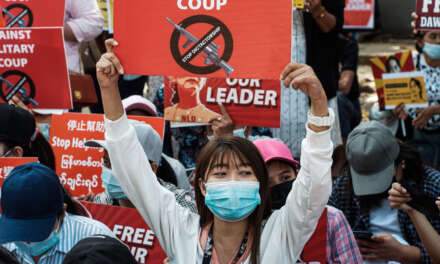by Akbayan Representative Walden F. Bello*
One of the first remarks that President Barack Obama is likely to make when meeting President Gloria Macapagal-Arroyo on July 30 is, “I understand this is your last year in office?”
It is intriguing to speculate how Mrs. Arroyo is going to respond to this question. But whatever her response, Obama is likely to read her the riot act: don’t even think about staying in power beyond June 30, 2010.
The message may be delivered with the restraint and diplomacy that is the US president’s usual manner or with the directness with which Obama recently characterized the behavior (“stupid”) of the Cambridge police in arresting his friend Harvard Professor Henry Louis Gates. But rest assured: it will be delivered.
Pulling the plug on the SONA/CON-ASS scenario
The timing of the visit, shortly after the State of the Nation (SONA) address, cannot be understood unless we take into consideration the likely role of the US Embassy.
The Americans were probably just as worried as Filipinos that the President and her allies in the House of Representatives would declare the joint session of the two houses of Congress a Constituent Assembly soon after the president finished her speech, invoking the controversial House Resolution 1109 that was railroaded though the chamber on June 2.
By having Obama meet Arroyo right after the SONA, the US pulled the plug on this scenario since Arroyo could not possibly traipse to Washington to meet Obama after pulling off this stunt and leaving her country in turmoil.
Why is the US so keen on preventing an unconstitutional move, be it in the form of a Constituent Assembly or emergency rule via a “Transition Government”? Because it’s been down this road before, and the consequences were not pretty.
The US supported Marcos’ imposition of martial rule in 1972 and underwrote his 14 long years in power and all it reaped was a tremendous loss of credibility and the very instability that Marcos has promised to banish.
Today, the US has its hands full with two wars – in Afghanistan and Iraq – that are a legacy of the Bush II presidency, and it is not about to allow itself to be burdened with another uncontrollable crisis in one of its key dependencies.
Moreover, the Obama administration has been trying to repair the international image of the United States after the demolition job the Bush years did to it, and being dragged to intervene in a mess created by Arroyo’s unconstitutional effort to stay in power is the last thing it needs in this already difficult process of rehabilitation.
But make no mistake: reading Arroyo the riot act would not be a gesture of benevolence on the part of Washington. It is one that would serve the US’s current interests as Obama discerns them.
It is for these same reasons that Obama has refused to back the military-backed government in Honduras and lined itself up with other Latin American governments to demand a restoration of the democratically elected president Manuel Zelaya.
But will it deter Arroyo?
But the question is: will Obama’s warning be sufficient to deter Arroyo from trying to extend her rule? It will, in the immediate future.
But as the electoral process gains momentum, Arroyo’s dilemma will become stark.
She will increasingly be driven to make the choice between the certainty of prosecution and jail after June 30, 2010, when she is constitutionally required to step down, and the possibility of being able to pull off a coup either by Con-Ass or emergency rule.
For Mrs. Arroyo, her family, and her retinue, there will increasingly be no choice but to gamble on the second despite all the problems, including incurring Washington’s wrath, the latter may bring.
Even now, Arroyo and her cabal are probably closely watching the Honduran drama to see if the illegal regime there can successfully defy Washington.
President Arroyo and her people know that extension of her stay in power is extremely unpopular, but their calculations rest ultimately on the answer to the question: are people ready to come out to the streets to lay their bodies on the line to stop it?
This is why, when all is said and done, it will not be editorials or messages from the pulpit or the Senate’s opposition or Washington’s attitude that will stop the desperadoes in Malacañang but the direct democracy of the streets.
*Columnist Walden Bello is Representative of the party-list Akbayan! (Citizens’ Action Party), president of the Freedom from Debt Coalition, and senior analyst at the Bangkok-based research and advocacy institute Focus on the Global South.









